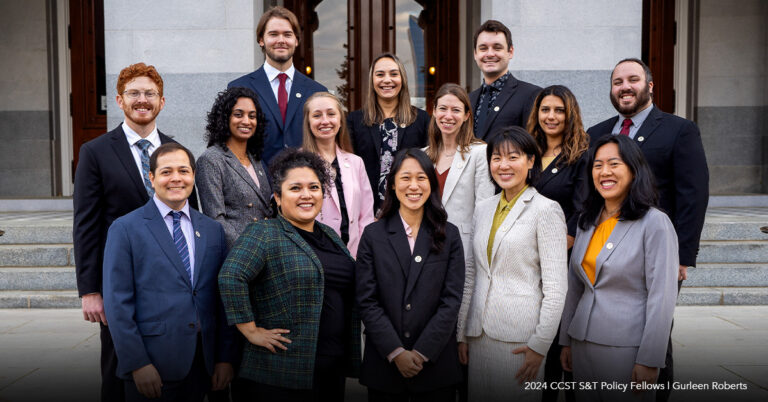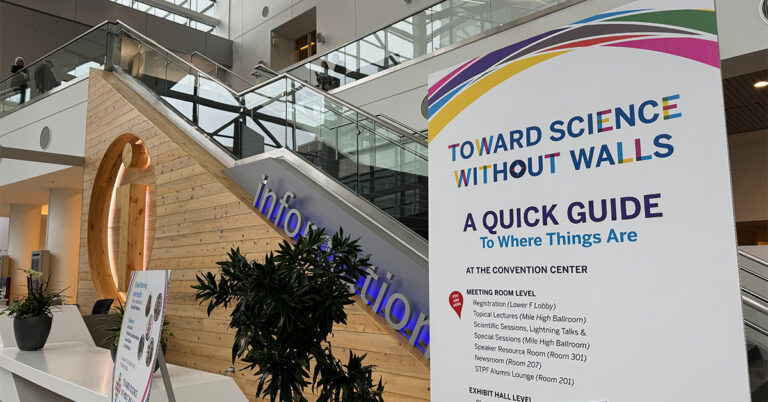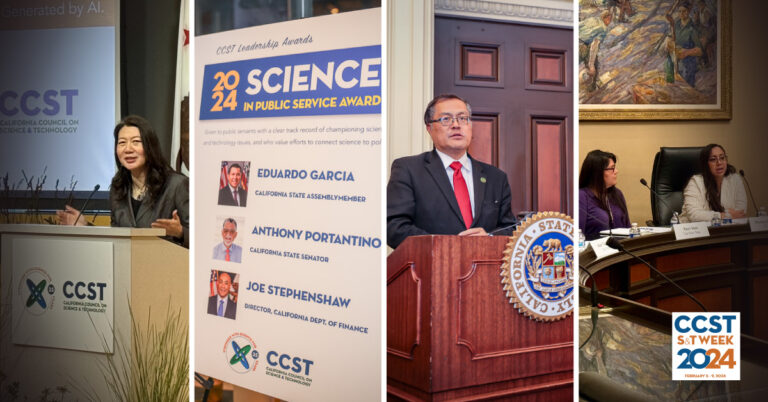Update: Applications for the CCST Science & Technology Policy Fellowship Have Closed
Sharing My Ecology Research with California Legislators
August 5, 2020 | CCST Newsroom, CCST Science & Technology Week

William Ota is a graduate student at UC Riverside in Evolution, Ecology, and Organismal Biology in the lab of Professor Kurt Anderson and is the Government Relations Committee Chair of UC Riverside’s Center for Science to Policy (S2P). William was a participant in the 2020 CCST Science Translators Showcase, held in the Governor’s Office Council Room in Sacramento, California on Feb. 5th, as part of CCST Science & Technology Week.

As an ecologist who researches how we can better manage wastewater release to conserve biodiversity within cities, I have worked closely with a number of local, state, and federal agencies: the US Fish and Wildlife Service (USFWS), the California Department of Fish and Wildlife (CAFWS), the US Geological Survey (USGS), conservation districts, and recreation districts. However, presenting my research to legislators, staffers, and others at the showcase gave me a completely different perspective on how important my and other scientists’ work is for policy.
I consider myself incredibly lucky to have started my graduate student journey when the new Center for Science to Policy (S2P) at UC Riverside was first founded. The founding student members who have since graduated, Dr. Holly Mayton, Dr. Derreck Carter-House, and Dr. Drew Story have gone on to become founders of the National Science Policy Network and hold AAAS Science and Technology Policy Fellowships. After working with this group in my first year of graduate school, I was eager to put my skills to the test in order to highlight the importance and utility of urban ecology to legislators.
…Presenting my research to legislators, staffers, and others at the showcase gave me a completely different perspective on how important my and other scientists’ work is for policy.
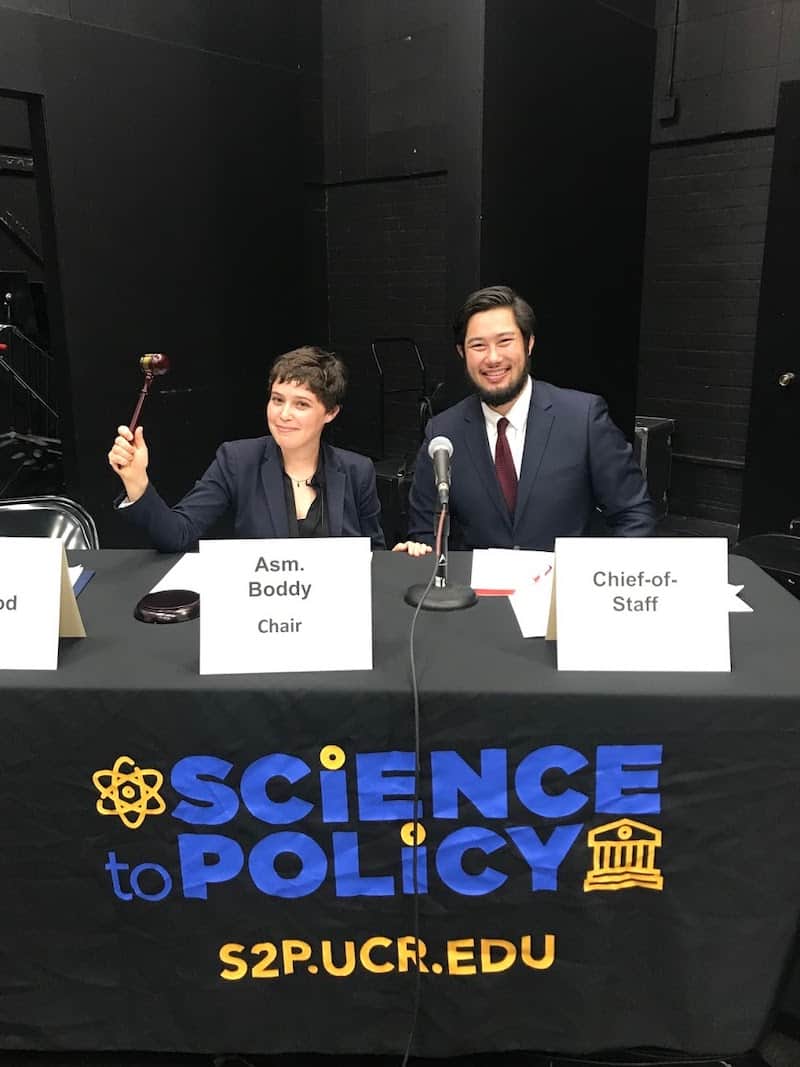
Through S2P, I learned about CCST and the CCST Science & Technology Policy Fellows program, which trains and places Ph.D. scientists and engineers in state legislative and executive offices for a year. I also discovered the CCST Science Translators Showcase, a program for current graduate students and postdocs that features research being done in California. I decided to apply. Now, I am proud to say that like two of the founders of S2P I am an alumnus of the CCST Science Translators Showcase!
When applying, I think the hardest part was recording the 60-second video explaining the importance of my research. It definitely is a challenge to develop a clear, concise, and succinct explanation of research in everyday terms. Now that the showcase is over, I am excited to use what I learned and try recording this video again for social media and other outreach activities. Developing an elevator pitch is a helpful exercise because it forces you to think about the scientific jargon and common assumptions you and other experts in your field use instinctively. I highly encourage everyone to give this activity a try. You’ll also get a head start on your CCST application for the 2021 showcase!
After a seemingly interminable wait – the type that comes whenever you submit to a grant, manuscript, award, or fellowship you really really want to win – I was accepted into the 2020 Science Translators Showcase! In the months leading up to the showcase I got to know my fellow translators and Jeffery Song (CCST Fellows Program Manager) through a series of ZOOM webinars and online activities (unfortunately well-timed practice for our current situation) in which we learned all about how the California state government operates, tools and skills for science communication, and all about each other’s amazing research!
When applying, I think the hardest part was recording the 60-second video explaining the importance of my research. It definitely is a challenge to develop a clear, concise, and succinct explanation of research in everyday terms.
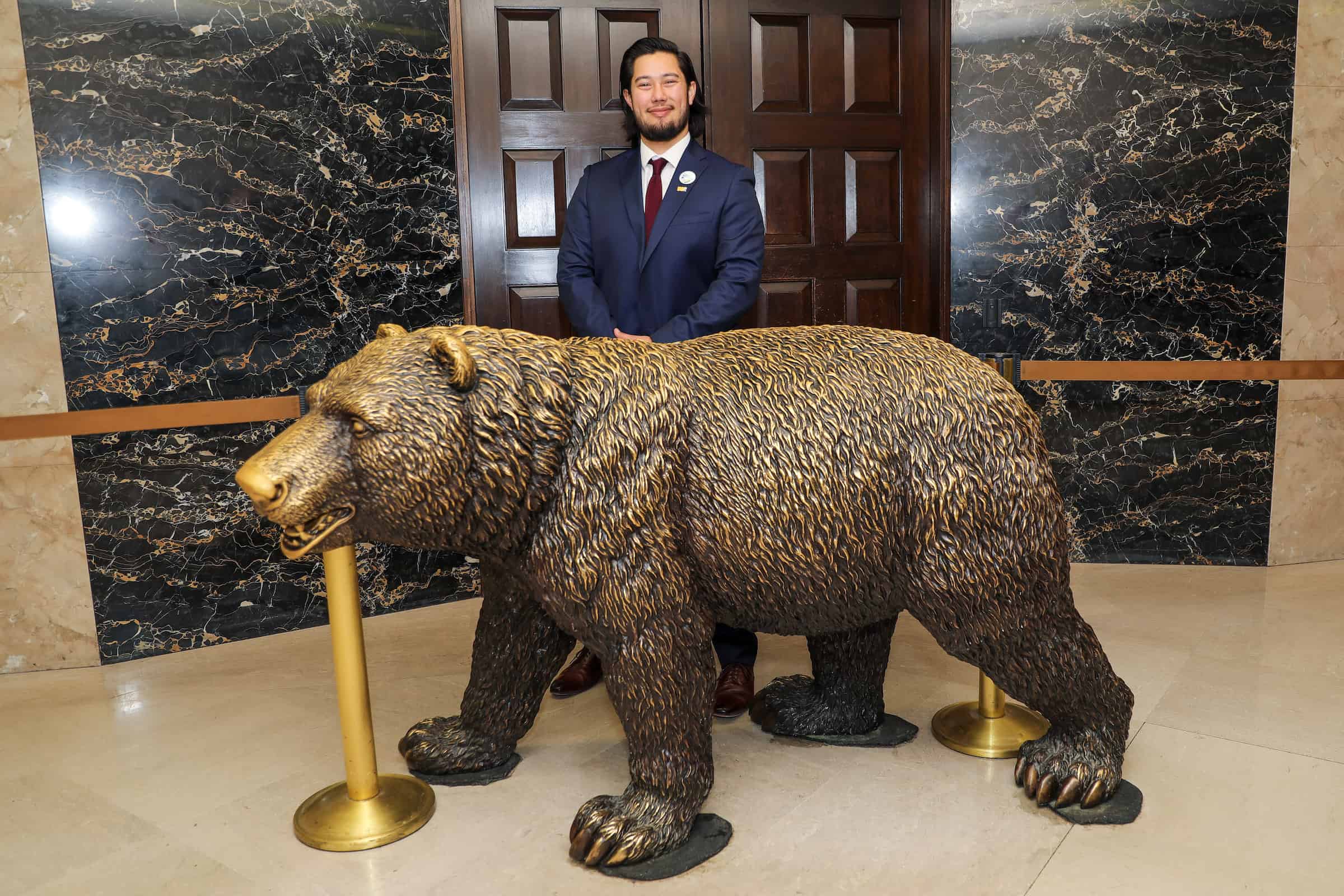
The day of the showcase, I managed to make my 5 a.m. flight to Sacramento and finally meet my fellow translators in person in the CCST offices. After a few hours of practice networking and training, we received our science policy bookmarks (business cards with our elevator pitch and a research slogan) and headed to the Governor’s Office Council Room in the California State Capitol to put our hard work into action. To kick off the showcase, my local representative and sponsor of the CCST showcase Assemblymember Jose Medina (D-Riverside), Chair of the Assembly Higher Education Committee, welcomed all of the translators and spoke to us about what this work means for public policy.
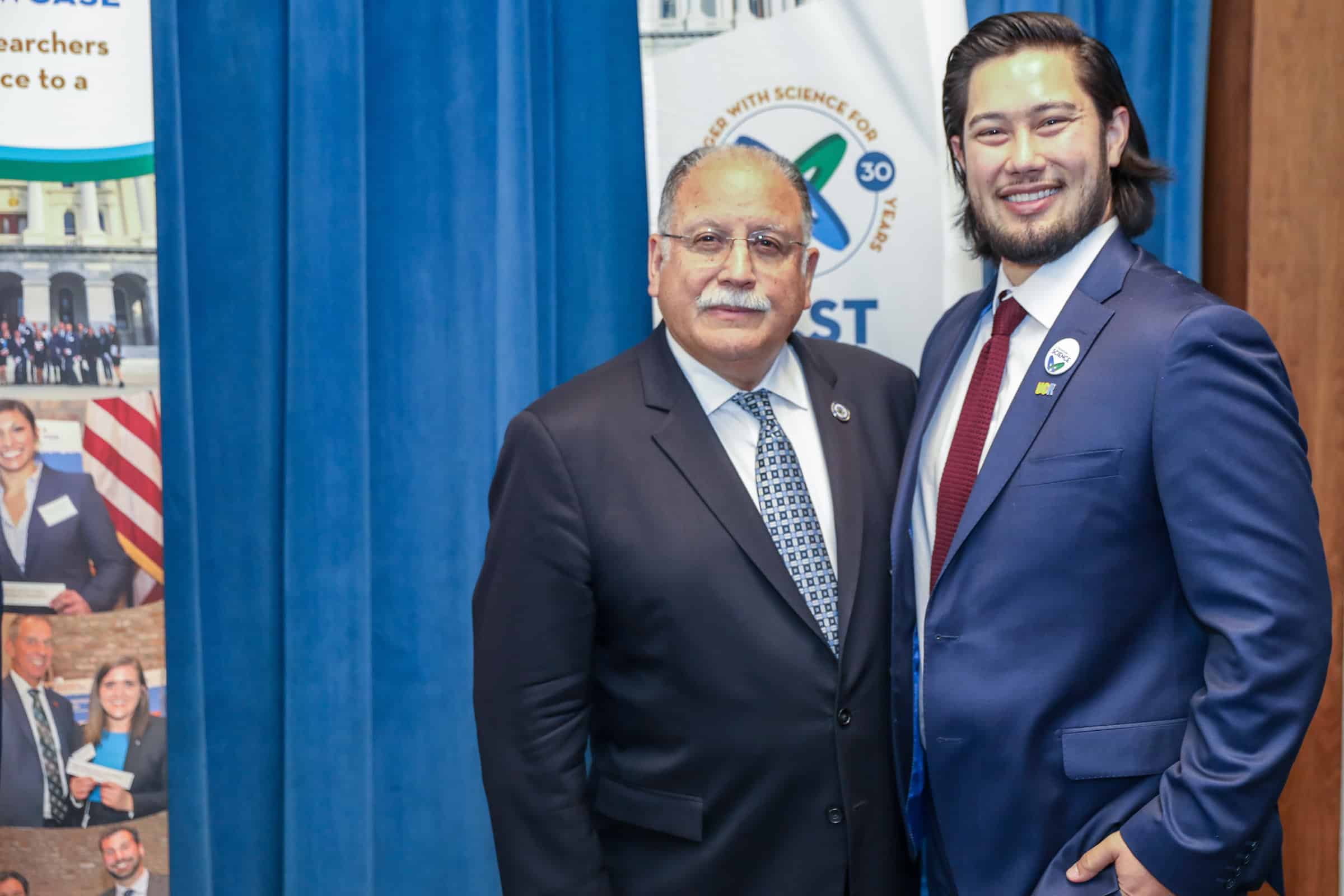
By the end of the three-hour showcase, which absolutely flew by, I had a better perspective on the importance of groups like S2P and CCST. Communicating the importance of primary research and applied scientific work to legislators helps them understand how this work effects so many facets of their constituent’s daily lives and supports science-informed decision making.
Communicating the importance of primary research and applied scientific work to legislators helps them understand how this work effects so many facets of their constituent’s daily lives and supports science-informed decision making.
Walking away from the California State Capitol, I reflected on spending an entire day with 15 other passionate young scientists who share a common interest for communicating the importance of their work to non-scientists. In that moment I was left with a great hope for the future of science-informed policy and I could imagine myself returning to this building for my future career. I believe that this day will be one of many to come in which I am able to use my research and communication skills to interact with legislators like Senator Richard Roth (D-Riverside) and Assemblymember Jose Medina (D-Riverside) to improve how science is used in policy. The CCST Science Translators Showcase and other experiences available through CCST are opportunities that I cannot recommend highly enough to every scientist who wants to learn more about science policy and communication.

After attending the CCST Science Translators Showcase, I have been able to put the skills I learned to use in various ways. These include writing a policy memo on environmental DNA monitoring for the Journal of Science Policy & Governance, which has been accepted pending revisions, submitting a panel to the AAAS 2021 conference titled “Institutionalizing Science Policy on Your Campus,” and helping to coordinate and teach the National Science Policy Network’s new Science Policy Scholars Bootcamp. I would not have been as well prepared for any of these if I had not received the training through the Showcase. Through these opportunities, I hope to help others have similar experiences in science policy to those I have been lucky enough to have.

I hope to continue practicing science policy with groups like S2P and CCST in the future. As science and technology continues to rapidly advance, the translation and communication of this work to other spheres of society will only increase in importance. As a community, we should have conversations about how our scientific work fits into broader conversations, and move our results from research papers into our neighborhoods, states, and nation. This showcase has helped me to grow personally and professionally. I cherish meeting a new group of colleagues who I hope to work with in the future, and cheer on as they accomplish amazing things in the world!
###
About the California Council on Science and Technology
The California Council on Science and Technology is a nonpartisan, nonprofit organization established via the California State Legislature — making California’s policies stronger with science since 1988. We engage leading experts in science and technology to advise State decision makers — ensuring that California policy is strengthened and informed by scientific knowledge, research, and innovation.

